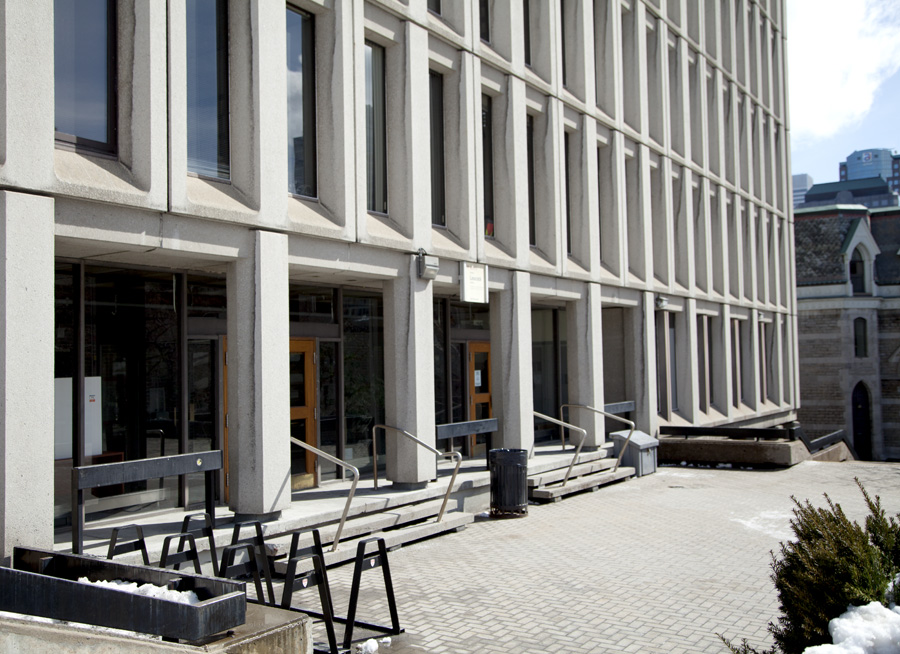Senate—the highest academic body at McGill, composed of students, staff, and administration representatives—held its first meeting of the year on Jan. 17. During the session, Senators approved adding the classification of the term “post-retirement” to the Regulations Relating to the Employment of Contract Academic Staff and the Faculty of Medicine Faculty Council’s Terms of Reference. Senate also reviewed and approved several items from the Board of Governors (BoG)’s report, which summarized decisions made at its last meeting on Dec. 12. Among these decisions were the Policy Concerning Smoking on McGill Campus and the Policy on the Use of McGill University’s Name, Logo and Other Trademarks.
Revision to the Regulations Relating to the Employment of Contract Academic Staff
Senate added a provision for non-tenure, post-retirement contract academic staff to continue research or graduate supervision for up to three years after retirement on an unpaid basis. During discussion, Students’ Society of McGill University (SSMU) Vice-President University Affairs Isabelle Oke noted that this could pose a problem for post-retirement staff who will continue to supervise PhD students through their retirement—given that the average student takes four to five years to complete their PhD. Oke requested clarification over the wording of the document.
“Can staff only get this appointment once?” Oke asked. “The language in the document implies that this can only be given to newly-retired staff.”
Professor Angela Campbell, associate provost (Equity and Academic Policies), responded that receiving the appointment only once was the implication, but did not clarify further how this revision would affect all PhD students.
“This provision allows for the individual to have a place at McGill during retirement,” Campbell said.
Notice of Motion to Include the Associate Provost (Equity and Academic Policies) as an Ex Officio Member of Senate
Senate also debated a motion to recognize the position of Associate Provost (Equity and Academic Policies) as an ex officio member of Senate, meaning that the Associate Provost would sit on Senate by virtue of holding the position. Other ex officio members of Senate include the McGill Chancellor, Provost, Deputy Provost, and various Deans. Senators spoke highly of this revision, however adding another administrator—increasing the number of senators from 111 to 112—would mean that the 56 seats currently held by academic staff would no longer be the majority. Alenoush Saroyan, professor in the Department of Educational and Counselling Psychology, supported the motion because the Associate Provost (Equity and Academic Policies) is already actively involved in Senate meetings.
“I will support this because it really liberates the [Associate Provost] position,” Saroyan said. “[However], if [the position] is given to a senior administration member, it’s a conflict of interest [because academic staff are supposed to have the majority].”
Senate and the BoG will vote on this motion on Feb. 21 and Apr. 26, respectively.
Discussion of the CAMSR Terms of Reference
The Committee to Advise on Matters of Social Responsibility’s (CAMSR) Terms of Reference are currently under review. The proposed revision would mandate that investments not be used for specific social or political causes. CAMSR’s purpose is to advise the BoG on social responsibility in the University’s investments. On Dec. 12, students interrupted a BoG meeting to protest the Board’s failure to consult the McGill community about the revision. The interruption led to the meeting adjourning early, with no decision made surrounding CAMSR’s Terms of Reference.
After the BoG’s report, Saroyan took the opportunity to argue for public consultation with students, faculty, and administration, citing extensive public forums for discussion prior to the approval of previous changes to CAMSR’s mandate in 2014. Secretary General Edyta Rogowska replied that circumstances were different with the previous revision.
“The previous review focused on introducing changes to CAMSR that were much more extensive than the changes proposed in the current mandate,” Rogowska said. “The practice employed for the previous review was the exception.”
Saroyan responded that the proposed changes to the current mandate were equally fundamental to those proposed in the 2014 review, urging the BoG to reconsider a public forum for discussion. Alumni Association Representative Tina Hobday clarified that the BoG has not yet made their decision.
Following the meeting, Oke shared some of her frustrations with discussion.
“There is a lack of collaboration, particularly with students,” Oke said. “Senate is a place where policy goes for final approval, and that’s it. Discussion is usually sidestepped.”
The next Senate meeting will take place on Feb. 21.








